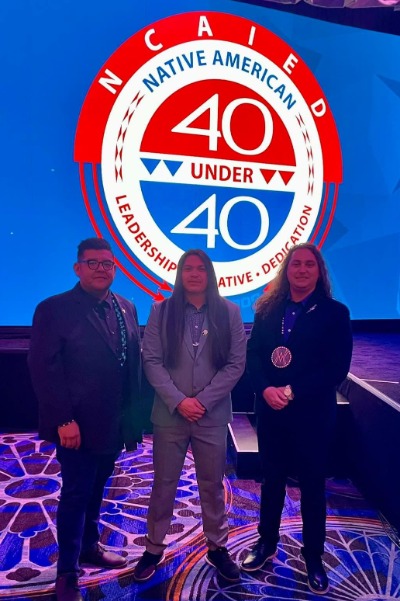
Three years after entering a crowded, competitive field, Strive Gaming has entered the North American market. As the customer base grows, President Damian Xuereb wants to accompany the development of the market through a new wave of growth.
Damian Xuereb, President of Strive Gaming, is sure of one thing. “Strive was certainly not a first mover in the US,” he says. But the US market is approaching its sixth anniversary. Strive Gaming has only been in the game for half of that.
Founded by Xuereb and CEO Max Meltzer, both veterans of the post-PASPA gold rush, Strive knows the market. Three years after placing the first bets, we monitor what works and what doesn’t.
“We had the advantage of understanding the state-by-state specifics in each market,” Xuereb continues. “We had the opportunity to do our research and make sure that we are building a product that meets not only the current state, but also the future state or needs as we roll it out into more and more states.”
Strive is building a future-proof offering as the US market works to move away from promotional activities and bonuses as drivers of customer acquisition and retention and focus on building a product that resonates with consumers. “Given the challenges our competitors and operators face in the market; We are able to address this,” explains Xuereb.
“We are also able to create real added value [a business]. Using our Infinity Rules Engine truly offers operators the opportunity to achieve higher lifetime values through personalization and contextual engagement. This also allows them to run their gaming operations with lower overhead costs through automation and create contextual campaigns across all verticals and channels.”
A focus on North America
Crucially, the Strive platform was developed for the North American market. It is a product designed to solve the nuances and challenges of regulatory requirements, player journeys and a player experience unique to the region. The management team of Xuereb, Meltzer and CMO Jamie Shea will not lose focus as opportunities arise in other areas of law.
“We will not be distracted by other regulations,” says Xuereb. “We are not chasing the regulated market in Brazil, we are not chasing the Dutch or German market.
“This means our business and product will continue to evolve around the North American player experience.”
Strive is thus positioning itself for product-oriented development in North America. “Players are maturing, player experiences are changing and it is operators’ responsibility to ensure they delight their players with meaningful experiences.”
“We are seeing a trend of new, non-traditional companies entering the gaming space and major brands entering the sports betting and igaming space, including those with backgrounds in broadcasting and merchandising, as well as companies with complementary assets,” he says. “The new era of PAM aims to go beyond traditional gaming verticals and unify operators’ assets, creating an intelligent ecosystem based on player behavior.
“Consumers buy a brand, not a channel. As a technology provider, it is our responsibility to provide players with a consistent experience.”
Three years, eight customers
Xuereb is proud of the diversity of partners Strive has created over the past three years. It started with the launch of Desert Diamond and Golden Nugget Online Gaming – part of DraftKings – in Arizona. There is also Betsafe from Betsson, PointsBet in Canada and most recently Four Winds from the Pokagon Band of Potawatomi Indians. Additional customers have registered and will be announced later.
The list ranges from locally established core operators to international competitors, with a market-leading US customer thrown in for good measure. This requires a migration in each case; PointsBet, for example, complements its own technology. Four Winds replaces another PAM. Why go through the process of breaking free from one platform and switching to another, with all the risks that entails?
“We see our operators gaining significant market share,” says Xuereb. “Desert Diamond in Arizona is a local tribal promoter and they really mix it up with the big boys in the industry and beat some of the national players. With the right technology behind a brand, local operators can compete.”
Single-state operators have struggled to compete with market leaders, but Xuereb argues that’s exactly what Strive wants to help them do.
“We want to enable operators to be competitive at this level,” he says. “It’s not just about gaining market share. Smaller operators deserve a bigger piece of the pie, especially if they can offer a local flavor and an equally player-friendly experience.
“We know that not all customers will have the marketing budget of the big companies,” he continues. “This means that we as platform providers have to do more. We have to work harder and smarter. We must provide our operators with all the tools that allow them to be truly competitive.”
Do something different
This could be through real-time bonuses, deep integrations with sportsbooks, cross-selling from different verticals, or running unique promotions in collaboration with local brands.
“Differentiation is key,” says Xuereb. “If everyone had the same product, it would just be a race to the bottom.

“Here we really want to encourage our operators to reward differently and smarter. It’s important to make sure you reward the right players, at the right time, with the right amounts.”
A tailored marketing plan only serves to increase the risk of bonus abuse, he says. Instead, Strive aims to help partners refine and adapt their strategy to truly engage with their players in each market.
Here too, the importance of evolution matters, says Xuereb. “Strive has brought to market technology that solves some of the fundamental challenges operators face when launching a brand.
“But our investment didn’t end there, our product has continued to evolve.” Its roadmap is influenced not only by its market experience, but also by what customers want to achieve, “whether it offers different front-end experiences and different checkout options, whether it whether it is our hybrid checkout or whether we work with preferred partners to create a unified waterfall experience in the payments space.”
The omnichannel evolution
As a three-year-old company in a six-year-old market, Xuereb sees great growth opportunities. While sports betting exists in 36 states, Icasino only operates in seven. As the market grows, players will mature and the market size will increase.
“We will continue to see more positive data sets from the market around the halo effect that digitalization is having on land-based devices,” he predicts. The most progressive operators will work to create a unified omnichannel experience to unlock hidden value and strengthen player loyalty.
“This is really the area where Strive can help operators differentiate themselves, whether that’s integrating with their land-based system or creating a single sign-on or even creating a unified loyalty program for both land-based as well as for land-based systems.” online.
“So I really expect operators to really harmonize their ecosystem and create these consistent omnichannel experiences.”
Xuereb wants to redefine what a PAM provider is to an operator. Strive has established itself in a region dominated by proprietary technology brands and multinational competitors, proving that first-mover advantage is not as strong as a streamlined, North American-focused product.
“We have a unique advantage in our Infinity Rules Engine that can unify any channel, any industry and even expand beyond non-gaming industries,” he adds. After its founding, Strive is preparing for a new phase of growth.







